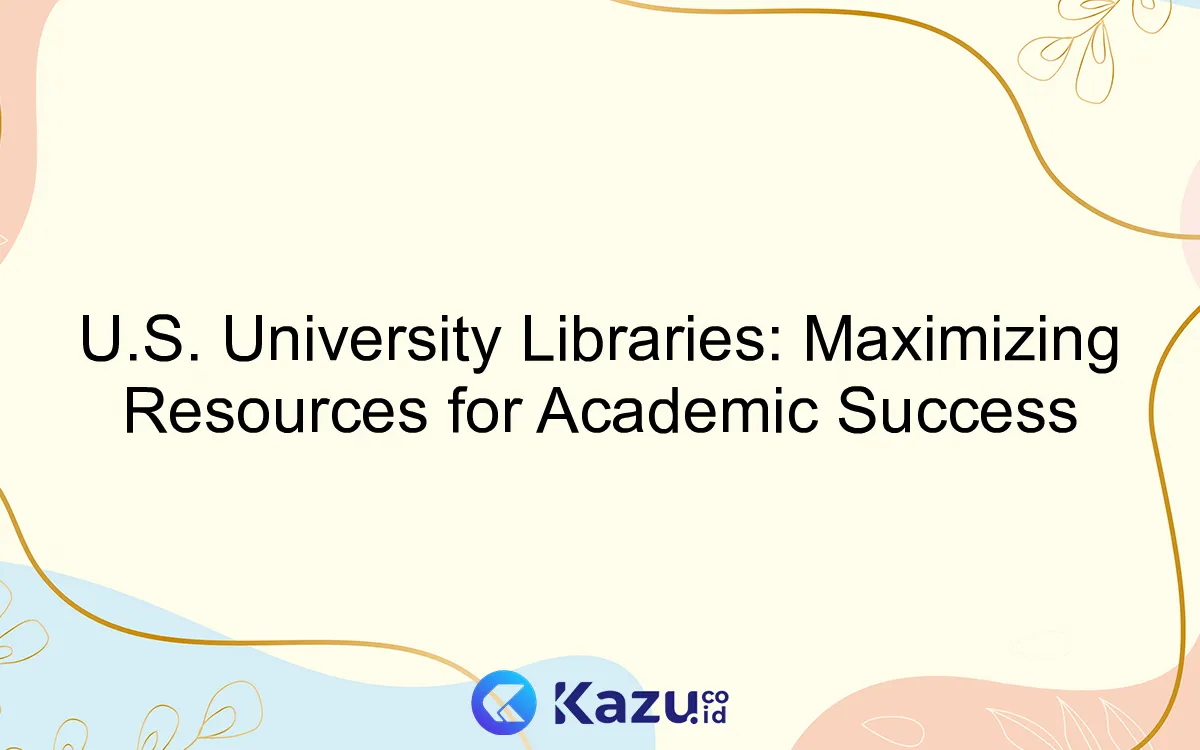U.S. University Libraries play a crucial role in supporting academic success by offering an abundance of resources to students and researchers. From vast collections of books, journals, and digital materials to cutting-edge technologies and expert guidance, these libraries provide invaluable tools for those seeking knowledge and intellectual growth.
Exploring Library Services
A library is a vital resource for students pursuing academic success in U.S. universities. With a vast array of services available, university libraries play a crucial role in supporting students’ learning needs. Whether it’s through traditional print resources or innovative digital collections, these libraries aim to provide comprehensive resources that maximize students’ academic achievements.
One key service offered by U.S. university libraries is access to a wide range of academic materials. From textbooks and scholarly journals to research papers and multimedia resources, libraries strive to provide students with up-to-date and relevant information. Through interlibrary loan systems, students can also request materials that may not be available in their own university’s collection, expanding their research possibilities.
Furthermore, many university libraries offer specialized support services to enhance students’ learning experiences. These may include subject-specific librarians who can guide students in their research, citation assistance to ensure academic integrity, and workshops on information literacy to help students navigate the complex world of scholarly resources. Such services empower students to become independent learners and improve their overall academic performance.
In addition to academic resources, U.S. university libraries often provide collaborative spaces for students to study and engage in group projects. These spaces may range from quiet reading areas to high-tech study rooms equipped with multimedia facilities. By fostering a conducive learning environment, libraries encourage collaboration, knowledge sharing, and academic growth.
Moreover, the digital revolution has transformed the services offered by university libraries. Online databases, e-books, and digital archives provide 24/7 access to a wealth of information, allowing students to conduct research from anywhere at any time. Technology-equipped study areas, computer labs, and advanced research tools further facilitate students’ exploration and utilization of digital resources.
Overall, U.S. university libraries are invaluable assets that play a pivotal role in students’ academic journeys. By providing comprehensive resources, specialized support services, collaborative spaces, and embracing digital advancements, these libraries contribute significantly to the success and achievements of students in their pursuit of higher education.
Using Online Research Databases

In today’s digital age, U.S. university libraries are embracing the power of online research databases to provide students with easy access to a vast array of academic resources. These databases offer a treasure trove of scholarly articles, research papers, books, and more. By utilizing these resources, students can maximize their chances for academic success in several ways.
1. Comprehensive and Reliable Information: Online research databases compile information from various credible sources, ensuring that students have access to reliable and up-to-date information. These databases cover a wide range of academic disciplines, enabling students to explore diverse subjects.
2. Efficient Search Capabilities: Online research databases are equipped with powerful search engines that allow students to quickly find relevant materials. With advanced search filters and keyword options, students can refine their searches and save precious time.
3. Access to Peer-Reviewed Journals: Many online research databases include peer-reviewed academic journals. These journals undergo a rigorous review process, ensuring the quality and validity of the research. Access to such journals greatly enhances the credibility of students’ academic work.
4. Citation Assistance: Online research databases often provide citation tools that help students properly reference their sources. This feature saves students from the tedious task of manually formatting citations and ensures adherence to academic citation standards.
5. Remote Access: One of the greatest advantages of online research databases is the ability to access them from anywhere with an internet connection. Whether in the library, at home, or on the go, students can leverage these databases to their advantage.
By harnessing the power of online research databases, U.S. university libraries are maximizing their resources to support students’ academic success. These databases offer a wealth of information, efficient search capabilities, access to peer-reviewed journals, citation assistance, and remote accessibility. Empowered with these tools, students can delve deeper into their subjects, enhance their research skills, and excel in their academic pursuits.
Effective Library Search Strategies
In today’s digital age, university libraries play an essential role in supporting academic success. With vast resources and materials available, it is crucial for students to maximize their efforts when conducting research. Here are some effective library search strategies to help students make the most of their university library experience.
1. Define Your Research Goals
Before diving into the vast sea of information, it is important to define your research goals. Clearly identify what you are looking for, whether it is specific articles, books, or data. Having a clear objective will help you save time and efficiently utilize library resources.
2. Familiarize Yourself with Library Catalogs
University libraries often have extensive catalogs and databases that house a variety of resources. Take the time to explore and familiarize yourself with these catalogs. Learn how to effectively search for materials using keywords, subject headings, and filters to refine your search results.
3. Utilize Advanced Search Techniques
When conducting research, utilizing advanced search techniques can significantly enhance your results. Learn how to use Boolean operators (AND, OR, NOT) to combine or exclude search terms. Additionally, take advantage of wildcard symbols and quotation marks to narrow down your search and find more precise results.
4. Tap into Subject-Specific Databases
If your research focuses on a specific discipline, it can be beneficial to explore subject-specific databases. These databases often provide more targeted and in-depth resources related to your research topic. Consult with a librarian or explore the library’s website to identify the most relevant databases for your field of study.
5. Seek Assistance from Librarians
Librarians are a valuable resource when it comes to conducting research effectively. They possess extensive knowledge of library resources and can guide you in finding the most relevant materials for your research. Don’t hesitate to reach out to them for assistance or schedule a research consultation.
By utilizing these effective library search strategies, students can maximize their use of university libraries and enhance their academic success. Remember, the library is not just a place for books but a treasure trove of valuable resources waiting to be discovered.
Conclusion
In conclusion, U.S. university libraries play a crucial role in maximizing resources for academic success. With their vast collection of books, journals, and databases, students have access to valuable information for research and learning. Additionally, the libraries provide a serene environment conducive to studying, with various study spaces and resources such as group study rooms and multimedia equipment. The libraries also offer expert assistance from librarians who can guide students in finding relevant resources and improving their research skills. Overall, U.S. university libraries serve as valuable academic hubs that enable students to excel in their studies.
